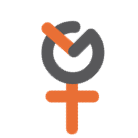Power
This domain focuses on the important differences in the amount of women and men having a key leader position in the working area, therefore it highlights the gender-based balance in decision-making positions. Since the causes for the under-representation of women are multiple and assorted, a comprehensive approach is surely needed in order to tackle the problem at best.
In the Report of the “Gender Equality Index 2015” we can find the two basic reasons why a gender-balanced representation of power is a priority to be achieved as soon as possible: first, because it regards the equal access of all to the concept of “social justice” and second, because of the notable importance of reaching a gender-balanced representation of the society as a whole and of the positions of power.
In addition, the European Commission is one of the organs that promotes for the most the achievement of a gender-balanced representation of the society: as a matter of fact, it set out “equality in decision making” as a priority issue in its “Women's Charter”[1] and in the “European Commission's Strategy for Equality between Women and Men”. Besides, it is committed in promoting awareness, networking and exchange of good practices among stakeholders and it cooperates with all of them in order to design and implement EU activities to achieve gender balance in leadership positions.
This Domain should be divided, conceptually speaking, into three sub-domains, the economic, political and social ones, but unfortunately the social sub-domain of power is covered with too little gender based indicators, therefore leaving space only to the economic and political ones to be analysed by the Index. The political power is measured through the collection of data regarding three different sectors: ministries, parliaments and regional assemblies[2].
Women's representation in ministerial positions presents good data, reaching its highest point in 2010, when women notably accounted for 25% of all ministers; as regards parliamentary representation, the level of women's representation slightly narrowed starting from 2005, since what we can deduce from the data is that men persist to dominate national parliaments in almost all Member States; in the end, there are huge differences among States as for what concerns data related to regional assemblies' representation.
In fact, notably in France we have women's representation in regional assemblies close to equal (52% men) but in Hungary we have a worrying percentage of 91% men holding the stage. On the other hand, the economic power, which stands here for the second sub-domain, is built on the collection of data related to the share of women and men on the boards of the largest quoted national companies and the share of women and men in all key decision-making bodies in central banks throughout the European Union.
To briefly summarize what we can deduce from the data, the European Union as regards the first aspect of the economic power is far from reaching equal and gender-balanced representation in the ambit of boards of the largest quoted national companies: the nearest Member State to this regard is Finland, with about a third of board positions occupied by women and the worst in this sense is Malta, presenting a percentage of 4% of board positions occupied by women.
Therefore, we can state that men are even more over-represented in the economic decision-making field than in the political one, as shows the other aspect of the economic power: in Europe men account for 83% members on average of decision-making bodies of central banks, so far rendering the equality in this area just an utopia.
[1]It has been adopted by the European Commission on the occasion of the 2010 International Women's Day with the aim of achieving an improvement in the promotion of equality between women and men. It undertakes the commitment to take into account “gender equality” in all its policies and activities, listing a series of fields of action for equality between women and men such as “economic independence”, “equal pay”, “representation of women in decision-making and positions of power”, “to end gender based violence” etc.
[2]Source of information: DG Justice, alias the European Commission Directorate-General for Justice and Consumers.
There is currently no content classified with this term.



